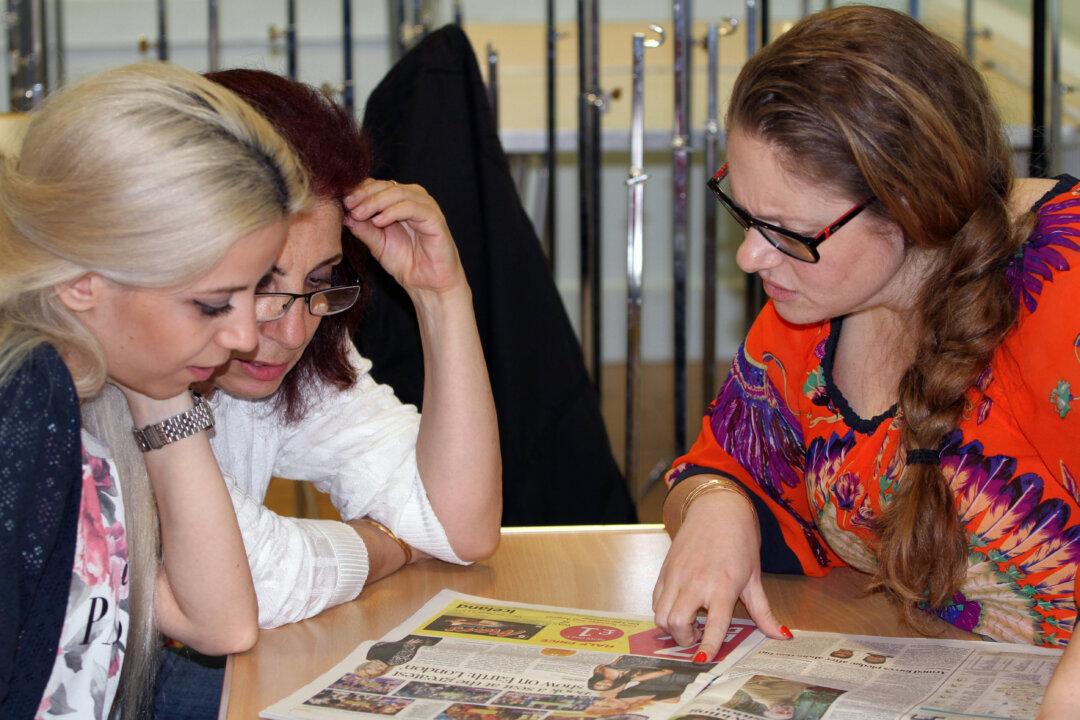LONDON—A summer rainstorm pounded down on the eaves of Christ the Saviour church hall in London as Fardous Bahbouh poured tea and set up the makeshift classroom where she teaches some 25 Syrian refugees how to ask for directions in English, shop for groceries and navigate British norms in making new friends.
Bahbouh’s class is part of a larger Facebook community called “Ahlan Wa Sahlan” — Arabic for welcome — one of many small local efforts that have sprung up across Britain to help migrants who have made their way to the country after fleeing civil war in Syria.
“Being a refugee myself, I know how it feels to be away from home and having no option to return,” said Bahbouh on a recent Thursday. A language teacher in her 30s from Syria, she was studying for a master’s degree here when war broke out and prevented her from going home. Now she teaches others as a way of giving back to those who helped her.
As the U.K. struggles to implement its commitment to resettle more than 20,000 Syrians, the government is counting on charities and community groups to help the newcomers adjust to life in Britain. The Home Office has for the first time set up a program to allow local organizations to sponsor refugees and the agency’s website directs volunteers to migrant charities that need their help.
While Britain initially resisted international pressure to accept large numbers of refugees, more than 9,000 Syrians have filed for asylum in the U.K. since 2011. That is a tiny fraction of the 1.1 million Syrians who registered throughout Europe during the same period, including almost 377,000 in Germany alone, according to the United Nations High Commissioner for Refugees.
Local groups say they can be incubators for programs, providing a blueprint for transition that will help larger efforts succeed. After all, local communities are fundamental to the success of any resettlement effort, said Maurizio Albahari, author of “Crimes of Peace: Mediterranean Migrations at the World’s Deadliest Border,” and a social anthropologist at the University of Notre Dame in Indiana.





